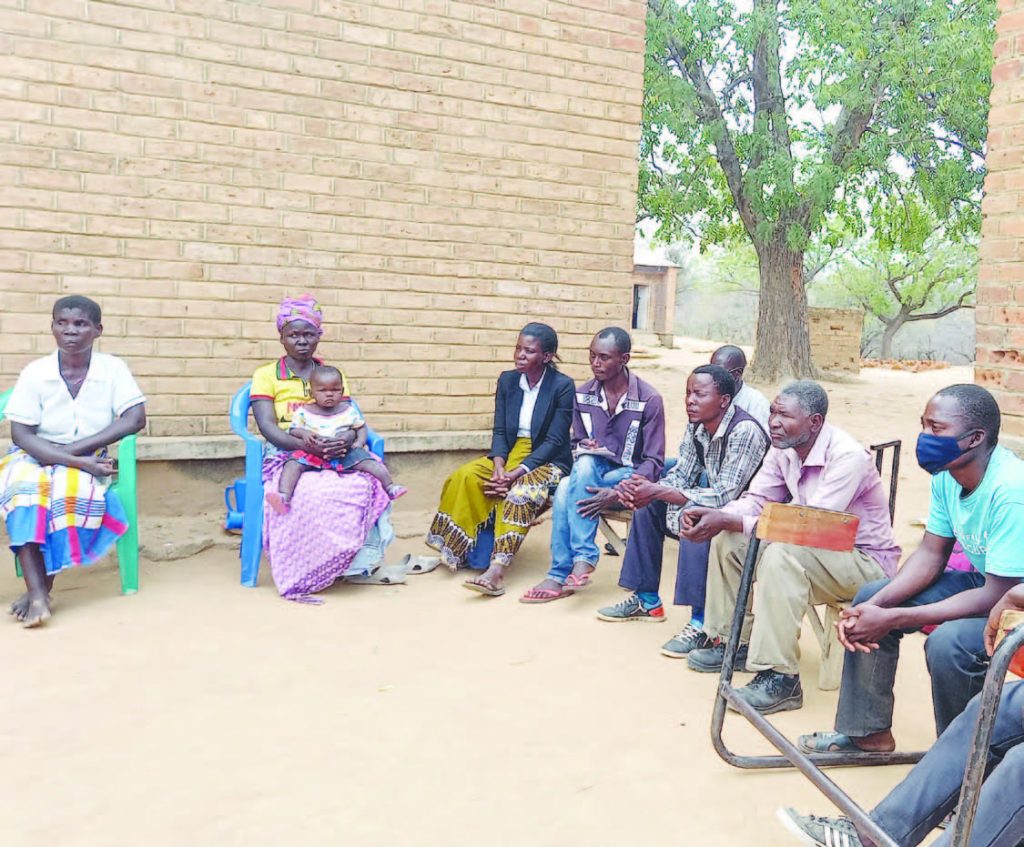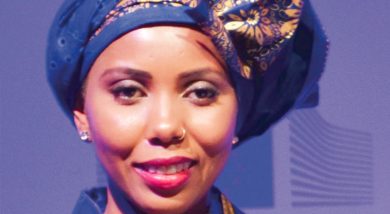Nipping GBV in the bud
Richard Petro, 36, from Traditional Authority (T/A) Tengani in Nsanje grew up witnessing domestic abuse perpetrated by his father.
He narrates how this upbringing affected him and his family.

Petro says his father used to drink excessively and beat up his mother.
He recounts: “Out of anger, my mother could leave the house to her home village and my father would continue with his drinking habits leaving us children to fend for ourselves.
“I dropped out of school while in Standard Seven. I admire some of my friends who are now educated and doing well in life. I could have been somewhere had my parents been responsible enough.
Third born in a family of eight, Petro is now championing the fight against gender-based violence (GBV) in his village.
He explains why: “I suffered a lot because of the conflict between my parents. I don’t want my children or any of the children in my area to experience what I went through.”
The father of 3 says if parents lack stability, they have no time to look into the welfare of their children, let alone development their families, resulting in a vicious circle of poverty.
Like Petro, Gertrude Kamanga shares how she struggled to pursue her education after her father abandoned his family for another woman.
She narrates: “He told us he was going to town to search for greener pastures, but before long we heard he had a new wife. He abandoned our family.
“I was selected to Kalambo Community Day Secondary School [CDSS] and had to do some piece work to raise money for school fees and other expenses.”
Both Petro and Kamanga are gender champions in the district where they work with the National Initiative for Civic Education (Nice) Trust in a project called Elimination of Violence Against Women and Girls (Evawg) through transformative civic education.
The Trust is implementing the project in six districts of Nsanje, Nkhata Bay, Ntchisi, Dowa, Mzimba and Machinga.
The project, which started in May this year and ends this month, has trained village committee member on issues of gender, human rights and child rights with support from UN Women under the Spotlight Initiative.
Through the project, Nice Trust is raising awareness on Evawg, GBV and its impact on women as well as promoting girls’ rights. This has helped to prevent gender equitable social norms and attitudes. It has also brought about behavioural change at community and individual levels.
The project further seeks to increase multi-stakeholder agency and capacity in response to GBV through women movements and women and girls rights groups, to influence and advance progress on gender equality and women empowerment.
Eliza Dave testifies that her husband now respects her and there is peace in her home since the gender champions got involved in their matter.
She says: “My husband used to waste our hard earned resources on beer and he could beat me up heartlessly if I tried to question his behaviour.
“I reported the matter to Nice Trust officers, who helped me report him to police. He received counselling and since then we are living in peace. Our economic status is also changing for the better.”
Group village head (GVH) Macheka of T/A Tengani in the district attests to the change in tides since the rolling out of the project in the district.
He said in the past, women were being subjected to physical, emotional and financial abuse, particularly due to culture and tradition.
“In our culture a man is the one in control when it comes to family income, so he could freely waste all the family finances through drinking and womanising. Women could not leave the marriage due to the lobola [dowry] culture as her family would not support that decision,” explains the GVH.
Macheka says since the inception of the project, reports of violence against women and girls have minimised in the area and more men now understand the lobola concept.
On his part, GVH Masimo said they have dealt with cultural practices that promoted violence against women and children as well as early marriages.
He says: “We have bylaws to contain early marriages; teen mothers are going back to school. We no longer practice the culture of kulowa kufa (where a widow is forced to sleep with a man as part of cleansing) as we now use traditional medicine for cleansing.”
He further explained that parents have been enlightened to give equal opportunities to both their male and female children and avoid receiving dowry while their daughters are still in school or forcing the girl child out of her parents’ house once she reaches puberty.
According to the National Statistical Office (NSO) 2017, 34 percent of women aged 15-49 experienced physical violence since the age of 15, with 21 percent of them experiencing sexual violence in their lifetime. Of the women who experienced sexual violence in their lifetime, four percent had experienced this form of violence before the age of 18.
Nice Trust area civic coordinator Sabola Sabola says they trained local groups to build their capacity and get them involved in the implementation of the project.
“Community members have joined forces against all forms of violence and if they sense anything, they quickly report the incidences to relevant authorities,” he said.
Last year, Minister of Gender, Children and Social Welfare Patricia Kaliati declared total war against GBV and urged all men to join the fight. She said GBV denies women and girls their developmental rights and must be condemned at all cost.



